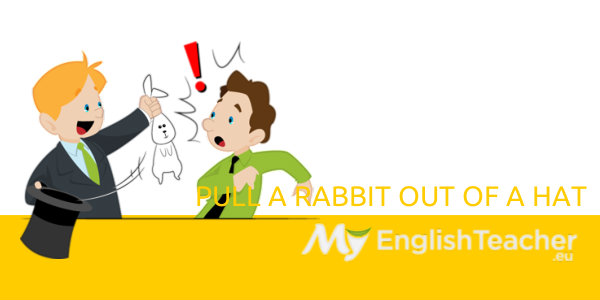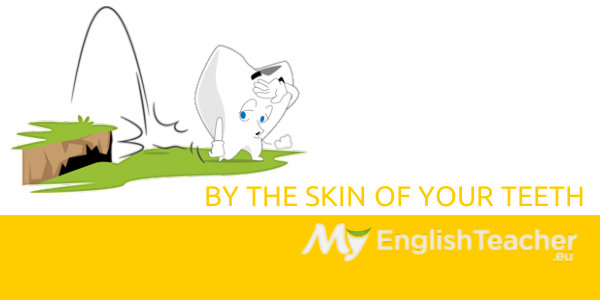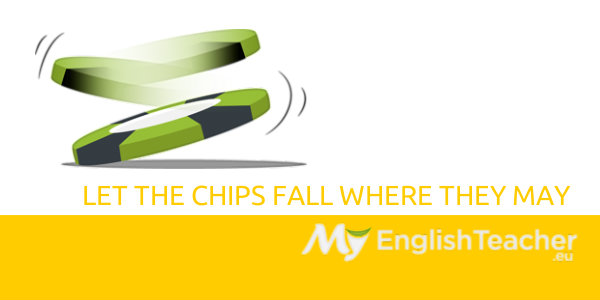1. CRUNCH TIME: the period of time just before a project has to be completed and everyone has to work hard
- I’m not getting enough sleep these days. It’s crunch time at work.
2. LET YOUR FREAK FLAG FLY: to let others see your uniqueness
- My colleagues were surprised at the Christmas party- I let my freak flag fly and showed them a break dance routine.
3. GET OUT OF HAND: when you lose control of things, they get out of hand
- The party got out of hand and the guests started to throw bottles at each other.
4. GET YOUR HEAD AROUND IT: to understand something
- I just can’t get my head around the fact that Joe is leaving us.
5. DIG IN YOUR HEELS / STICK TO YOUR GUNS: to refuse to compromise or change your mind
- My parents wanted me to give up writing, but I dug in my heels and went on to become a famous writer.
- My parents wanted me to give up writing, but I stuck to my guns and went on to become a famous writer.
6. POUND THE PAVEMENT: to walk the streets looking for a job
- I’d been pounding the pavement for months before I found a job in a fast food restaurant.
7. PULL A RABBIT OUT OF A HAT: to do something unexpected that may have seemed impossible
- I thought we were going bankrupt, but my partner pulled a rabbit out of his hat and we landed a major contract.
8. LEAVE NO STONE UNTURNED: to do everything you can to achieve your goal
- I’ll leave no stone unturned until I find out who did this.
9. GET IT OUT OF YOUR SYSTEM: to do something you’ve wanted to do for a long time and don’t want to postpone any longer
- I wasn’t sure how she was going to react, but I had to get it out of my system, so I told her I had found another woman.
10. STEP UP YOUR GAME: to start performing better
- If you want to win this competition, you’ll have to step up your game.
11. PULL YOURSELF TOGETHER: to calm down and behave normally
- I understand you’ve had a bad day, but pull yourself together and get on with your job, will you?
12. SHAPE UP OR SHIP OUT: either start performing better or leave
- This is the last time I’m telling you to arrive on time. Shape up or ship out.
13. CUT SOMEBODY SOME SLACK: to give somebody a break/ not to judge somebody severely
- I was extremely busy last week. Cut me some slack and I’ll finish the report by tomorrow morning.
14. BY THE SKIN OF YOUR TEETH: when you do something by the skin of your teeth, you only just succeed/ nearly fail
- I hadn’t studied much, but passed the test by the skin of my teeth.
15. ONCE IN A BLUE MOON: when something rarely ever happens
- We used to see him all the time, but now he just visits us once in a blue moon.
16. GO DOWN IN FLAMES: to end or fail suddenly and spectacularly
- She’d wanted to become Managing Director, but her career went down in flames when they found out she’d been leaking information to our competitors.
17. TAR SOMEONE WITH THE SAME BRUSH: to believe that someone has the same bad qualities as others in a group
- I don’t think much of that band, but the singer shouldn’t be tarred with the same brush. She’s got a fantastic voice.
18. COME OUT SWINGING: to be confrontational and strongly defend yourself at the beginning of a debate
- Our local MP came out swinging against the current leadership and demanded that the government resign.
19. HANG IN THERE: wait and be patient
- I know you’d really like to call him, but I don’t think that’s the right thing to do now. Just hang in there and he will call you.
20. SHOOT FROM THE HIP: to speak directly
- If you want to get on well with your boss, try not to shoot from the hip next time. You don’t want to offend him, do you?
21. GO THE EXTRA MILE: to make a special effort/try very hard to achieve your goal
- If you want to become proficient in English, you’ll have to go the extra mile and start learning idioms.
- My English class was great, we learnt so much because our teacher was the best, she always went the extra mile for us.
22. RUNNING ON FUMES: to continue to stay awake when feeling exhausted
- I’m sorry, but I’ve got to go home now. I haven’t slept for twenty hours and I’m running on fumes.
23. SOLD ME OUT: to snitch on someone, or let their secret out
- I asked you to keep it to yourself! I can’t believe you sold me out, I trusted you!
24. YOU SOLD ME (ON SOMETHING): you convinced me of something, because you were persuasive
- OK, you’ve sold me. I’ll go to the match with you.
25. BLEW ME AWAY: when something blows you away, you’re extremely impressed by it
- The exhibition just blew me away. I’d never seen so many beautiful paintings before.
26. BLOW SMOKE: to exaggerate or say things that aren’t true to make you seem better/ more knowledgeable than in reality
- I’m not blowing smoke. I have honestly read War and Peace by Tolstoy.
27. CRY WOLF: to call for help when you don’t need it
- Do you think Peter is in trouble or is he just crying wolf?
28. COULDN’T CARE LESS: used to express total lack of interest in something
- That man stole a bottle of wine from the shop.
- Oh, really? I couldn’t care less.
29. BE CHUFFED TO BITS: to be pleased and happy
- Hey, thanks for the present! I’m chuffed to bits.
30. FEELING UNDER THE WEATHER: to be ill or unable to do regular activities
- I think I’m going to have to take the day off work. I feel quite under the weather today.
31. BE TICKLED PINK: to be excited and happy
- She was tickled pink by all the compliments she’d received.
32. A BAKER’S DOZEN: thirteen
- Check out our baker’s dozen language learning tips.
33. COMFORT FOOD: food that makes you feel better, because it reminds you of your childhood
- After a tiring day, it’s so nice to make some comfort food and settle down with a good book.
34. SKELETON CREW: the minimum number of people needed to keep a service/office operating
- Can you come back after the holidays? We’re operating with a skeleton crew at the moment.
35. LET THE CHIPS FALL WHERE THEY MAY: to let something happen, no matter what happens next
- I must tell John how I feel about him, let the chips fall where they may.
36. NO-BRAINER: an easy decision
- Do you think I should propose to Judy?
- Come on, it’s a no-brainer. She’s such a fantastic woman!
37. A STONE’S THROW: very near
- The hotel was a stone’s throw from the beach. I loved it.
38. HEAR ON THE GRAPEVINE: to hear a rumour or unconfirmed story
- I heard on the grapevine that Charlie and Sarah are dating at the moment.
39. SIT ON THE FENCE: to stay neutral and not take sides
- Well don’t you think I’m right, he’s been acting differently hasn’t he?
- I’m sitting on the fence with this one, you’re both my good friends.
40. TAKE WHAT SOMEONE SAYS WITH A PINCH OF SALT: regard something as exaggerated, or only believe a part of something
- Did you hear what Tina said happened in the office yesterday?
- Oh, I would take anything she says with a pinch of salt.
41. FREAK OUT: to become very angry, scared or excited
- Mum, don’t freak out! I married a guy in Las Vegas.
42. BE A CATCH: be someone worth marrying/having
- John is taking me out tonight. He’s such a catch, I hope he’ll propose.
43. PIECE OF CAKE: when something is extremely easy to do
- Do you think you could beat him in a race?
- Yeah, piece of cake. I’m definitely a lot faster than him.
44. HIT THE NAIL ON THE HEAD: used if something someone says, is precisely correct
- My doctor hit the nail on the head. He knew exactly what was wrong with me!
45. COSTS AN ARM AND A LEG: when something is very expensive
- My son wants that mountain bike for his birthday, but it’ll cost an arm and a leg!
46. HIT THE BOOKS: to study very hard
- Do you want to go for lunch somewhere nice?
- No thanks, I’m going to hit the books. I have an exam coming up soon.
47. BITE OFF MORE THAN YOU CAN CHEW: to take on something that is too much for you to handle
- He recently got promoted and took on some new responsibilities, but he’s just too busy. He bit off more than he could chew, and I don’t think he can handle it anymore.
48. WHEN PIGS FLY: this means that something will never happen
- Aren’t you going to buy that dream house you told me about?
- Ugh, I will when pigs fly. It’s just so expensive, I don’t think it’ll happen.
49. DON’T JUDGE A BOOK BY ITS COVER: this means don’t make a decision based on a brief impression or outward appearance
- I don’t like our new neighbours very much, they’re quite strange.
- Hey, you shouldn’t judge a book by its cover. Give them a chance, I think they’re just a bit quirky but really nice!
50. YOU ROCK: you are great
- Thanks for the tickets, Rob. You rock!
51. MISS THE BOAT:
when someone has missed their opportunity to do something
- Have you applied for that job yet?
- No, I think I may have missed the boat. I should’ve done it last week.
















